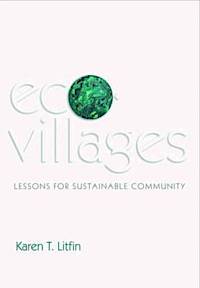Ecovillages : lessons for sustainable community
Liftin, Karen T.
Éditeur : POLITY
ISBN papier: 9780745679501
Code produit : 1268127
Catégorisation :
Livres /
Gestion /
Économie /
Économie et développement durable
Formats disponibles
| Format | Qté. disp. | Prix* | Commander |
|---|---|---|---|
| Livre papier | En rupture de stock** |
Prix membre : 25,60 $ Prix non-membre : 26,95 $ |
*Les prix sont en dollars canadien. Taxes et frais de livraison en sus.
**Ce produits est en rupture de stock mais sera expédié dès qu'ils sera disponible.
Description
In a world of dwindling natural resources and mounting environmental crisis, who is devising ways of living that will work for the long haul? And how can we, as individuals, make a difference? To answer these fundamental questions, Professor Karen Litfin embarked upon a journey to many of the world's ecovillagesNintentional communities at the cutting-edge of sustainable living. From rural to urban, high tech to low tech, spiritual to secular, she discovered an under-the-radar global movement making positive and radical changes from the ground up. In this inspiring and insightful book, Karen Litfin shares her unique experience of these experiments in sustainable living through four broad windows - ecology, economics, community, and consciousness - or E2C2. Whether we live in an ecovillage or a city, she contends, we must incorporate these four key elements if we wish to harmonize our lives with our home planet. Not only is another world possible, it is already being born in small pockets the world over. These micro-societies, however, are small and time is short. Fortunately - as Litfin persuasively argues - their successes can be applied to existing social structures, from the local to the global scale, providing sustainable ways of living for generations to come























